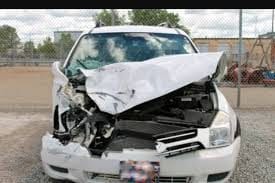
In terms of auto insurance, Minnesota has one of the lowest minimum coverage requirements in the country. The $10,000 property protection requirement is not nearly enough to cover the cost of a new vehicle. Moreover, the $30,000 personal injury requirement may only pay a fraction of medical costs in a brain injury or other serious injury incident.
Insurance companies have a legal duty to pay damages that their insured parties cause. But that duty only extends to the policy maximum. Since most people only carry the state-required minimum, there could be a substantial gap. Some people, but not very many, have umbrella insurance policies which provide additional coverage. In some cases, it’s also possible to sue the tortfeasor individually and recover the balance. But many people are basically judgment-proof.
Fortunately, Minnesota also has extremely broad vicarious liability rules, especially with regard to alcohol-related crashes. Once Brainerd accident lawyers identify the proper responsible parties, it’s much easier for victims to obtain fair compensation.
Employer Liability
All states recognize some form of the respondeat superior rule. But Minnesota’s version of this rule is incredibly broad. This legal doctrine holds employers responsible for the negligent acts of their employees. There are three basic prongs:
- Employee: In Minnesota, owner-operators, independent contractors, and even many unpaid volunteers are “employees.” This status is not a matter of legal classification or amount of compensation but of control. If the employer sets work hours, establishes workplace rules, makes assignments, or asserts similar control over a worker, that worker is an employee for negligence purposes.
- Scope of Employment: A few states limit the scope of employment to situations like a regular delivery driver making regular deliveries. But Brainerd accident lawyers can use an expanded version of the scope of employment prong. Any act that benefits the employer in any way is within the scope of employment. That includes something like driving a company car which bears the company logo (the employer benefits from the free advertising).
- Foreseeability: In Minnesota, a car crash is almost always a foreseeable consequence of operating a motor vehicle. “Foreseeable” is not synonymous with “inevitable” or even “likely.” About the only unforeseeable scenario is something like a worker stealing a car from the parking lot.
Respondeat superior generally only applies in unintentional tort cases, like car wrecks. Other theories, such as negligent supervision and negligent hiring, may apply in nursing home abuse and other intentional tort cases.
Alcohol Provider Liability
These kinds of collisions often cause the most serious injuries. Alcohol is a factor in about a third of the fatal car crashes in Minnesota. The figure is even higher in semi-rural areas, like Crow Wing County.
Generally, commercial alcohol providers, like bars and restaurants, are vicariously liable for damages if a sale is illegal and the customer later causes a car crash. There are basically two types of illegal sales in Minnesota:
- Under 21: These sales are rather straightforward. The customer was either under or over 21. In some cases, a fake ID might be a valid defense. That’s especially true if the person presented a fake ID purporting to be from another state. But the old “s/he looked like s/he was older” defense never works.
- Obviously Intoxicated: There is usually no direct evidence of intoxication. So, victim/plaintiffs may use circumstantial evidence to establish this point. Such evidence includes erratic behavior, unsteady balance, and slurred speech.
Noncommercial providers, such as New Years Eve party hosts, may also be liable under the dram shop law if they serve minors. If the person was over 21, another theory of recovery, such as negligent entrustment, may be an option.
Brainerd Accident Lawyers and Owner Liability
The negligent entrustment rule applies in many of these situations. That could include a child borrowing a parent’s car or a roommate borrowing a roommate’s car. Private owners are vicariously liable for damages if they knowingly allow incompetent operators to drive their vehicles. Evidence of incompetency includes:
- No drivers’ license,
- Several prior at-fault accidents,
- Safety-suspended drivers’ license, or
- Violation of license restriction (e.g. no night driving or no freeway driving).
Commercial negligent entrustment cases, such as a person who rents a car from Enterprise and causes a car crash, work differently because of the Graves Amendment. In these cases, Brainerd accident lawyers must introduce additional evidence to obtain compensation.
That compensation usually includes money for economic losses, such as medical bills, and noneconomic losses, such as pain and suffering.
Reach Out to an Aggressive Attorney
The tortfeasor may not be the only party that is legally responsible for car crash damages. For a free consultation with an experienced Brainerd accident lawyer, contact Carlson & Jones, P.A. We routinely handle matters in Crow Wing County and nearby jurisdictions.

